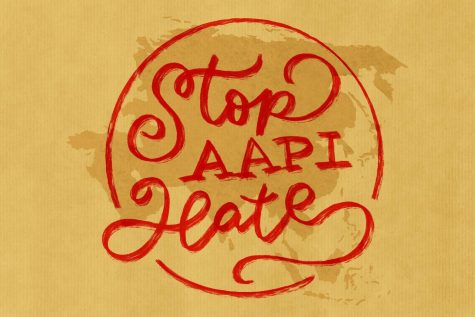Americans must condemn rising anti-Asian rhetoric
March 24, 2021

On March 16, Robert Aaron Long attacked three different Atlanta spas, killing eight people. Captain Jay Baker of the Cherokee County Sheriff’s Office quickly attested “[the shooter] said it was not racially motivated,” which is a disgraceful attempt to obscure this massacre and neglect his oath. Arguments that the shooting was not racially motivated blatantly ignore the fetishization of Asian women in Western society, especially when taking into account that Long sought to eradicate his “sexual addiction” by attacking these women.
Throughout this pandemic, individuals of Asian descent have been mercilessly scapegoated worldwide for causing the virus. Asian Americans have endured egregious hate crimes ranging from vandalism and assault to murder of senior citizens.
This revived anti-Asian xenophobia disseminated from democracy’s apex; former President Donald Trump openly encouraged Americans to mock the pandemic’s origin, normalized slurs like “Chinese virus” and “kung flu,” disavowed Chinese Americans and equated shopping at American Chinatowns with visiting Wuhan.
This unmasked assault is not unprecedented. Recent events eerily rehash anti-Asian sentiments that prevailed in 19th century populist waves. As industrious Chinese immigrants flocked to jobs on the Transcontinental Railroad, a San Francisco, California, health officer decried “unscrupulous, lying and treacherous Chinamen” as responsible for the city’s 1875 smallpox outbreak.
Asian American discrimination has far deeper roots in the U.S. than just bigoted barbs. While the Chinese Exclusion Act of 1882 serves as legislation that banned an entire ethnic group from immigrating to America, the Page Act of 1875 prohibited immigration of Asian women, unjustly “scapegoating” them for the crisis of forced prostitution and sexual exploitation of Asian women engulfing the U.S at the time.
Americans are understandably fearful of the pandemic’s bleak uncertainties and many have rashly and unfairly linked Asian Americans to their fears. Savagely beating elderly Asian Americans, however, is not just a racist, sexist or insensitive political statement — it is one of the most despicable reactions imaginable.
Despite the divisiveness that characterizes modern politics, American discourse is staunchly anti-China. While we have every right to debate policy in a free society, our only path forward is vanquishing jingoistic slander against fellow citizens that demolishes our ability to unite on communal threats like climate change.
We must implore our elected officials and law enforcement to treat all hate crimes as domestic terrorism, and to never give terrorists excuses like, “yesterday was a really bad day for him, and this is what he did.” Considering congressional Republicans are unwilling to even formally condemn recent Asian-American hate crimes, the Asian-American community is entrenched in an existential struggle for equal treatment and representation.
At this stage, shedding light on Asian-American hate is the only realistic course of action. While it is comforting to hear Tulane join the recent spattering of public support, it is high time Tulanians help rectify this imbalance by raising awareness on this underreported inequity off campus. Supporting Asian American organizations is notable progress, but virulent hate necessitates proactive engagement — we have to speak up, among friends and strangers.
If we defend every American’s constitutional right to tranquility and liberty, when humanity recovers and recalibrates its attention towards relevant threats, we can rightfully say we rejected self-destruction in favor of virtue whilst staring down fear and anger.






















Sophia Yao • Mar 27, 2021 at 6:07 pm
Well thought , well written article!